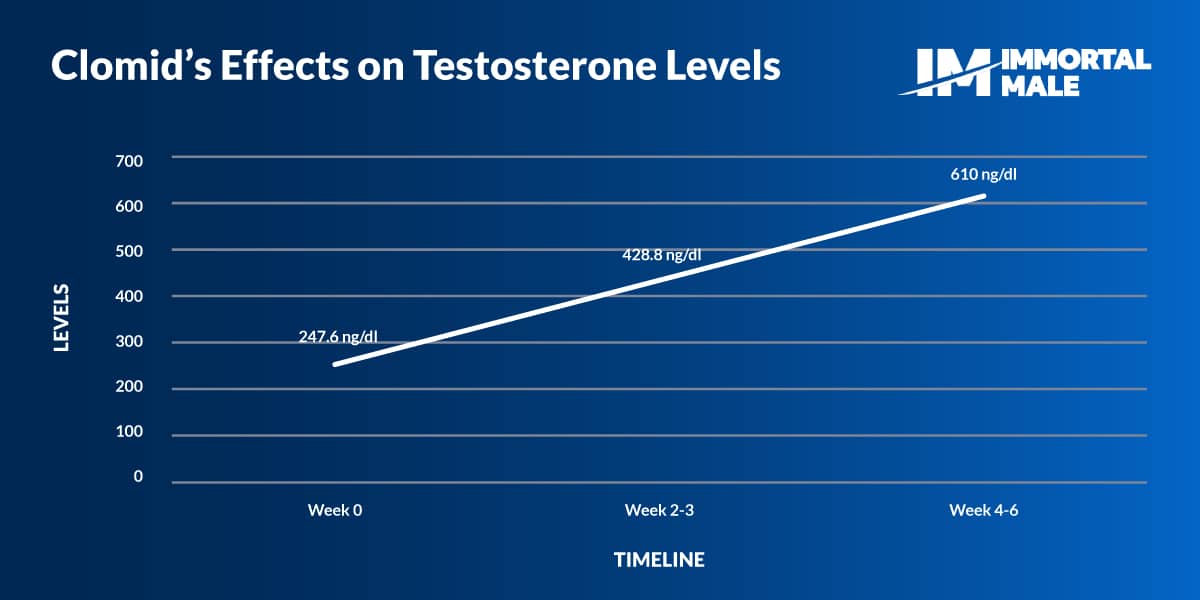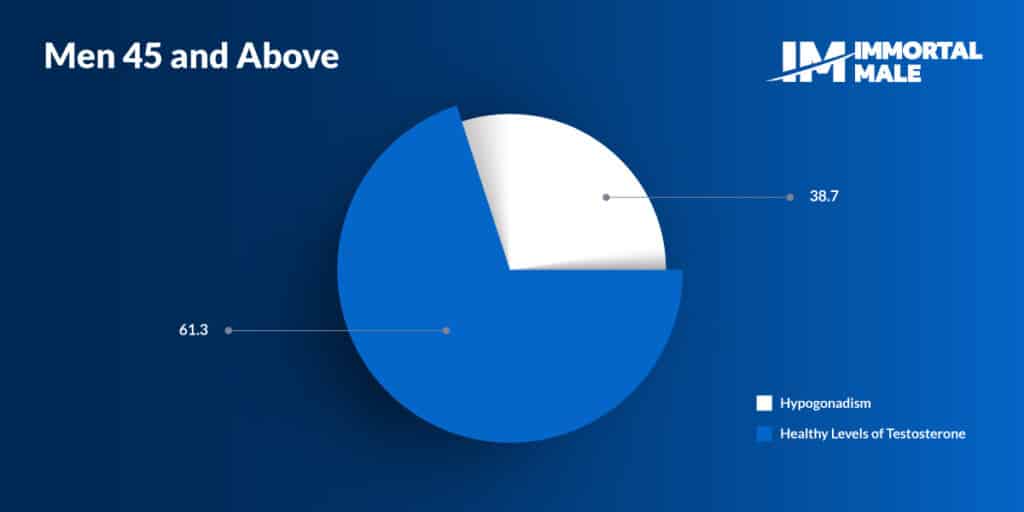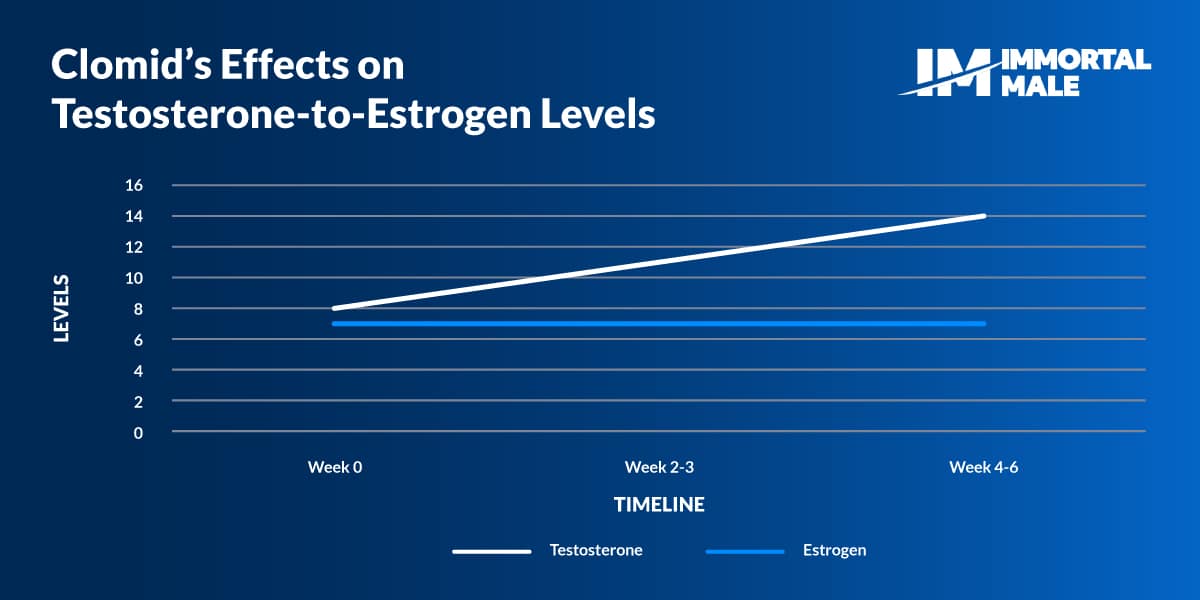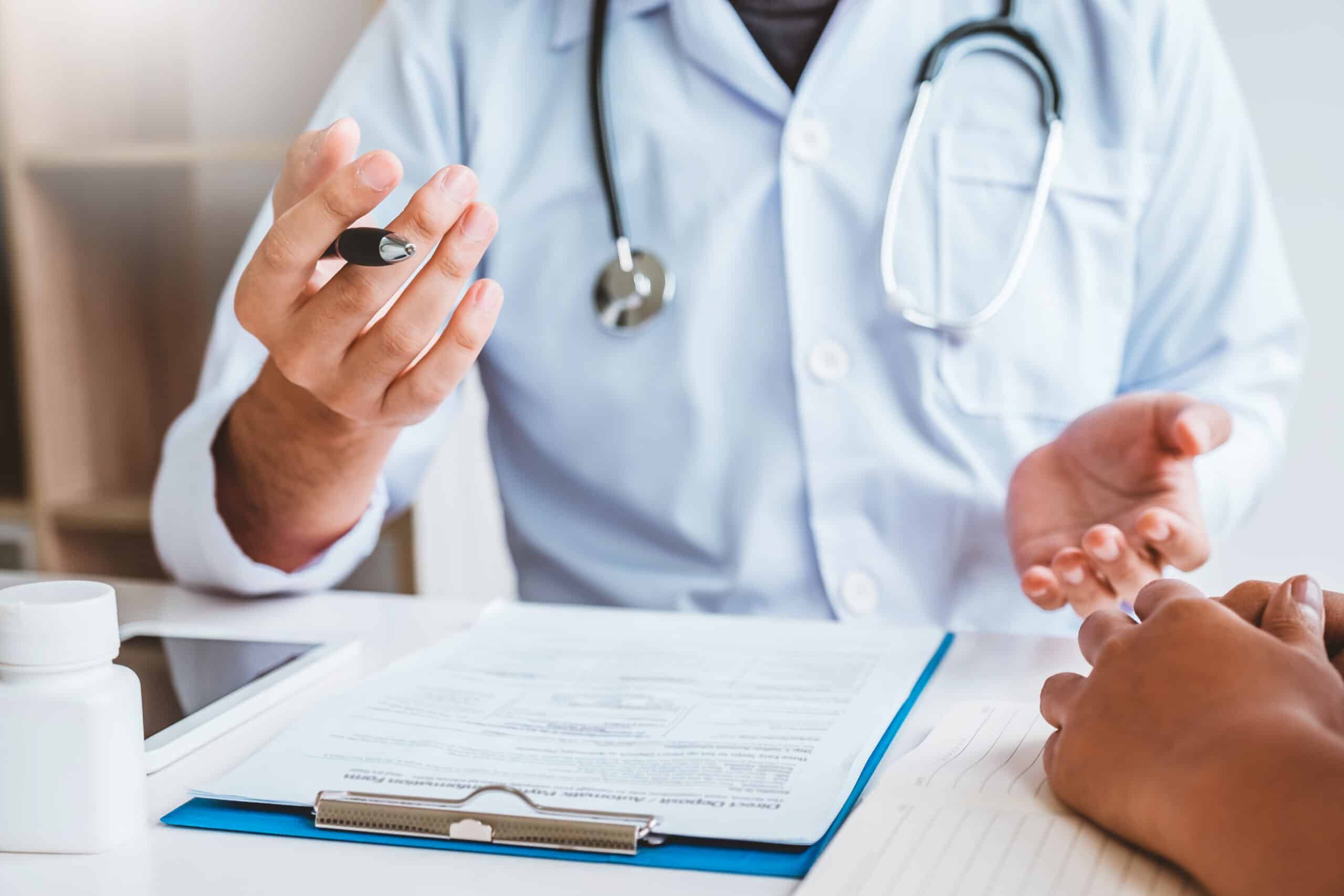
What Happens WHen You Stop TRT?
How to Restart Testosterone Production After TRT
Read on to learn more about what happens when you stop TRT.
Table of Contents
What is Testosterone Replacement Therapy?
Testosterone replacement therapy is the process used to treat low testosterone in men who are diagnosed with hypogonadism. TRT uses external sources of testosterone to help bring testosterone levels up to natural levels based on age range. Read on if you want to learn about the benefits of this treatment and what happens when you stop TRT.
While it is usually recommended that you use testosterone replacement therapy (TRT) as a lifelong treatment, some individuals may experience side effects from treatment that require them to stop TRT. One of the common side effects of stopping TRT is having the body no longer produce testosterone on its own, or seeing reduced testosterone production.
Ready to learn more about what happens when you stop TRT?

What is Testosterone Replacement Therapy Used For?
Testosterone replacement therapy is for men who are diagnosed with hypogonadism. Men who struggle with hypogonadism will have serum testosterone levels below 300 ng/dL and will likely experience negative symptoms as a result of the condition, such as erectile dysfunction and low energy levels.1Hypogonadism is caused by the gonads or testes improperly functioning, causing reduced testosterone production. Hypogonadism is most common in older men, with studies showing that 38.7% of men 45 and older have diagnosable hypogonadism.2
But what happens when you stop TRT?
A Deeper Look at Testosterone Replacement Therapy and Hypogonadism?
How Long Do You Need to Take Testosterone to See Results??
Men who begin low testosterone treatment will typically see results within four to six weeks.3 However, it may take some symptoms longer to improve. Improvements in sexual functions such as erections and ejaculations may take up to 6 months to see improvement from low testosterone replacement therapy.4
What Can I Expect if I Just Stop Taking Testosterone Replacement Therapy?
So, what happens when you stop TRT? Coming off of testosterone replacement therapy suddenly can result in a number of adverse consequences. When you take TRT for a significant time, the body’s natural production of testosterone slows down or may even stop since you are getting it from external sources. If you suddenly stop using external sources without tapering off, you will likely experience significant decreases in energy levels, a drop in libido, or worsening of any original symptoms.5
Some men may also not recover spermatogenesis (production of sperm) on their own, which leads to problems with fertility if left untreated. Read on to learn more about the effects of what happens when you stop TRT.
How to Restart Testosterone Production After TRT
After coming off TRT, you should work with a doctor to receive the proper treatment if your body’s natural testosterone production doesn’t recover on its own. Men who need to recover spermatogenesis or natural production of testosterone after treatment will benefit from medications such as injectable gonadotropins, selective estrogen receptor modulators, and aromatase inhibitors that can help the body start producing testosterone and recover spermatogenesis.6Symptoms Can Return When You Discontinue TRT
Wondering what happens when you stop TRT? Stopping TRT can cause symptoms of hypogonadism to return. Common symptoms that can return after stopping testosterone therapy are:
- Depression, anxiety, and other mood changes
- Erectile dysfunction and loss of libido
- Fat gain
- Changes in sleep patterns and insomnia
- Loss of strength, muscle mass, and energy

Ways You Can Support Your TRT And Boost Testosterone Naturally
What happens when you stop TRT and how can you naturally boost testosterone levels? There are ways you can support your TRT to get the best results or boost testosterone naturally after stopping testosterone therapy. This section will outline different elements that will be helpful to add to your TRT protocol.
Exercise
Exercise is one of the best ways to get the most out of TRT. Effects of TRT, such as increased muscle mass and fat loss, will be emphasized significantly when you implement a proper exercise program.
Diet
Diet can also have a big impact on the effectiveness of TRT. One study followed a 31-year-old male who was recovering from a spinal cord injury. The treatment process involved a combination of TRT and diet changes, which resulted in a 29% decrease in body fat with a 7% increase in lean mass. The study concluded that changes in diet, along with the use of TRT, resulted in a better recovery time and better results in a recovery program for a serious spinal injury.9
Restful Sleep
Sleep has been shown to have an influence on testosterone levels. A study of men who underwent a week where their sleep was restricted to 5 hours per night showed that their testosterone levels dropped by 10-15%.11Reduce Stress
Stress levels can have adverse impacts on testosterone levels. Making an effort to reduce stress through mindfulness activities, making time for yourself, connecting with others, and managing your workload are all good ways you can help TRT treatment be more effective or help the process of restarting testosterone production after stopping treatment.Healthy Sex Life
Maintaining a healthy sex life can be a good way to manage testosterone levels and boost natural testosterone production. One study assessed the effects of sexual activity on testosterone levels in both men and women. The study concluded that for both men and women, testosterone levels were highest after intercourse and lower on days with no intercourse.12Does Working Out Increase Testosterone Levels?
Maintaining a healthy sex life can be a good way to manage testosterone levels and boost natural testosterone production. One study assessed the effects of sexual activity on testosterone levels in both men and women. The study concluded that for both men and women, testosterone levels were highest after intercourse and lower on days with no intercourse.13
7 Ways to Raise Testosterone Naturally
Normalizing Natural Testosterone After Stopping TRT
It is important to normalize what happens when you stop TRT. If you have to stop TRT, it may take some time for natural production to begin or return back to normal. While some individuals may experience negative side effects after stopping treatment, testosterone shutdown symptoms will not be present in everyone. If you do experience testosterone shutdown symptoms, there are some steps you can take to help recover natural testosterone production, which will be discussed in the following sections.
How Long Before My Testosterone Levels Return to Normal After TRT?
For most patients who stop TRT, their testosterone levels will return back to where they were prior to seeking treatment within four to six weeks after stopping. However, for some men, it could take up to 3 months or longer before testosterone levels return to baseline after treatment.13
How Long Does TRT Stay in Your System?
What happens when you stop TRT and how long does it stay in your system? TRT will stay in your system for about three to four weeks after stopping treatment. However, you may see symptoms related to stopping TRT before the drug fully leaves your system. This is why it’s important to taper off of TRT so your body can begin to adapt and become used to not receiving doses of external testosterone.
What is Post Cycle Therapy (PCT)?
Asking yourself what happens when you stop TRT and what PCT is? Post-cycle therapy (PCT) is a drug and diet regimen that can help return testosterone to normal levels after stopping TRT. Post-cycle therapy was started as a way for anabolic steroid users to minimize the side effects of stopping anabolic drugs. However, it can have positive effects on those who have to stop TRT treatment as well. Studies have shown that PCT is an effective harm-reduction measure when coming off of testosterone or anabolic substances.14
PCT Treatments to Jump Start Natural Testosterone Production
The most common PCT treatments are Clomid and HCG. Working with a medical provider to manage doses and monitor progress is important during PCT treatment. Having medical supervision will help make the process as safe and effective as possible.How to Know if Your PCT Worked?
The best way to know if your PCT is working is to get bloodwork done and have your hormone levels checked. If your testosterone levels stay within a normal range or return to normal during PCT, you will know that your treatment was successful.Can Clomid Restart Testosterone?
What happens when you stop TRT, and how does Clomid tie into it? Clomid is a common post-cycle treatment that helps maintain testosterone levels in the body. Studies have also shown that Clomid can boost testosterone levels and help improve testosterone-to-estrogen ratios.
Clomid and Testosterone
How Long Should I Take Clomid for Testosterone?
It is usually recommended to take Clomid for four to six weeks when using it for PCT. Taking Clomid for longer durations than that timeframe can lead to adverse side effects on patients. It is also recommended to taper off Clomid to help stabilize normal testosterone levels. Suddenly stopping Clomid can have similar adverse effects on testosterone levels as suddenly stopping TRT.What Are Benefits of Clomid Over Traditional Testosterone Injections or Pellet TRT?
One of the main benefits of Clomid over traditional testosterone injections or pellet TRT is that it can be safely taken in pill form. This is often an easier way to take and administer medication. TRT is limited for oral administration since studies have shown that oral TRT has negative side effects on the liver.17Does HCG Increase Testosterone While on TRT?
What happens when you stop TRT and what does HCG have to do with it? While HCG is usually taken as a form of post-cycle therapy, studies have also shown the benefits of taking HCG in conjunction with TRT. HCG can increase testosterone while you are on TRT. If you take both simultaneously, you will want to track your testosterone levels and manage doses accordingly.
How Quickly Does HCG Increase Testosterone?
Studies have shown that it may take HCG a longer duration of time to boost testosterone compared to traditional TRT treatment. It can take up to 6 to 8 months of HCG to see significant boosts in testosterone levels. However, studies of men who took HCG for those time frames saw positive results from treatment.18Can I Use HCG Long Term?
HCG can be a safe and effective long-term treatment option in conjunction with TRT. A long-term study of the effects of HCG treatment in 17 male patients for durations of 14-120 months found that HCG had long-term positive effects on increasing fertility in men, and minimal side effects were reported for long-term use.20 This shows that HCG can be an effective long-term option for men who want to maintain or recover spermiogenesis and boost testosterone levels.
Learn what happens when you stop TRT with Immortal Male
Looking for more information on what happens when you stop TRT? If you need help stopping testosterone replacement therapy or are looking for help with the side effects of TRT, Immortal Male can help. Immortal Male has a team of knowledgeable medical professionals who are experts in testosterone therapy. If you’re experiencing any issues with TRT, we can provide you with many resources that can help.
How Immortal Male Helps with Side Effects from TRT
Service through Immortal Male doesn’t just stop when your medication arrives, we will provide you with ongoing support. If you get testosterone replacement therapy through Immortal Male, our medical staff will always be available to help with questions or concerns you may have. Our medical professionals can help adjust dosages to reduce side effects or find alternative options or resources that can help with your specific needs.Get Started with TRT
If you believe you would benefit from testosterone replacement therapy, Immortal Male can get you started and provide you with safe and effective treatment options. The first step to get started involves taking a hormone test that is quick, easy, and mailed directly to your doorstep for convenience. Moreover, we can provide more information if you are wondering what happens when you stop TRT.
Veterans and TRT
Utilizing testosterone replacement therapy to help treat any of these symptoms can help veterans get back on their feet and deal with any adverse side effects that combat or service might have created or exacerbated.
Contact us today to learn more about the treatment process or to learn more about what happens when you stop TRT.
Resources
- https://www.ncbi.nlm.nih.gov/pmc/articles/PMC6966696/
- https://www.ncbi.nlm.nih.gov/pmc/articles/PMC1569444/
- https://www.health.harvard.edu/mens-health/a-new-look-at-testosterone-therapy
- https://www.ncbi.nlm.nih.gov/pmc/articles/PMC3188848/
- https://pubmed.ncbi.nlm.nih.gov/26742589/
- https://www.ncbi.nlm.nih.gov/pmc/articles/PMC4854084/
- https://www.ncbi.nlm.nih.gov/pmc/articles/PMC6406541/
- https://www.ncbi.nlm.nih.gov/pmc/articles/PMC5566857/
- https://www.ncbi.nlm.nih.gov/pmc/articles/PMC6745335/
- https://www.ncbi.nlm.nih.gov/pmc/articles/PMC6266690/
- https://www.ncbi.nlm.nih.gov/pmc/articles/PMC4445839/
- https://www.sciencedirect.com/science/article/abs/pii/0031938492904539
- https://pubmed.ncbi.nlm.nih.gov/21058750/
- https://www.sciencedirect.com/science/article/abs/pii/S2211266916300238
- https://pubmed.ncbi.nlm.nih.gov/16422830/
- https://www.ncbi.nlm.nih.gov/pmc/articles/PMC5508437/
- https://www.ncbi.nlm.nih.gov/pmc/articles/PMC5182226/
- https://www.ncbi.nlm.nih.gov/pmc/articles/PMC6087849/
- https://www.ncbi.nlm.nih.gov/pmc/articles/PMC6844348/
- https://pubmed.ncbi.nlm.nih.gov/1516981/
Immortal Male is an online clinic that helps men optimize their hormones.
As part of your membership and as medically indicated, physicians prescribe medications, and recommend supplements that are delivered to you from the comfort of your home.